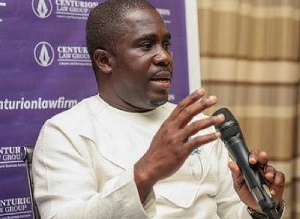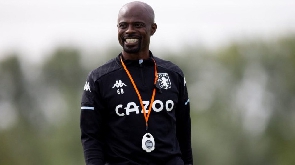By Kwame Okoampa-Ahoofe, Jr., Ph.D.
This June does not seem to be going well for Nigeria at all – on June 2, for example, a cargo plane belonging to the Lagos-based Allied Air Cargo Company crash-landed at Ghana’s Kotoka International Airport, ramming a passenger bus on a nearby road and killing ten passengers on the bus, a Mercedes Benz 207 commercial vehicle. None of the crew on the cargo aircraft, however, was seriously wounded.
Then just the following day, June 3, a commercial airliner flying from the Nigerian capital of Abuja to the country’s largest city and former capital, Lagos, slammed into a two-story residential building and killed all 153 passengers on board. The pilot of Dana Air MD 83 was an American citizen, while the copilot was reportedly an Indian. The passengers were also reported to have included six Chinese, an Indian and an unspecified number of Americans (See “Death Toll from Nigerian Passenger Plane Rises to 157” Herald Sun 6/5/12).
I guess what I am trying to get at here is the increasingly global and multiethnic and multicultural dimensions of air travel these days. In the case of Africa, though, population explosion and the remarkable increase in the number of airplanes in our skies, mathematically translates into the increased probability of air-traffic accidents of the deadly nature recounted at the beginning of this story. And in Africa’s peculiar case, the perennial culture of lack of systematic maintenance, partly due to the prohibitive cost of logistics and sheer carelessness are likely to remarkably contribute to the riskiness of air travel.
The irony here, though, is that in the West, air travel is routinely touted as the safest mode of commercial transportation. What the preceding means is that statistically and numerically speaking, while an occasional plane crash of a passenger airliner involves tens and a few hundred lives, compared to the exponential rampancy of road accidents, air travel may be aptly described as that which the greatest scientist ordered, whoever the latter was.
In the end, however, what requires bearing in mind and, perhaps, even being somewhat prepared for, is the fact that airplane accidents, such as have come to be fairly regularly known to the West, ought to be foresightedly accepted as being integral to an increasingly technologically accessible Africa, so as to enable our politicians and technocrats think and plan ahead by devising efficient ways of drastically reducing the fatally inevitable.
I suppose this was what President Goodluck Jonathan meant when the Nigerian leader tearfully visited the crash site of the Dana Air disaster in the Iju-Ishaga neighborhood of Lagos, about 5 miles from the Murtala Muhammed International Airport and vowed to make air travel safer. The question on the lips of many critics and studious observers of Nigeria’s bleak aviation record, predictably, was “Relative to what?”
But that both pilots of the Dana Air MD83 flight were of foreign nationality, may be, somewhat, deemed to readily mitigate any attempt by cynical critics to fault the professional caliber of Nigerian pilots, though it does not totally absolve the country’s aviation industry of the imperative need to become more efficient in order to win the trust and confidence of an increasingly disillusioned Nigerian travel populace, a considerably sizeable populace, to be certain.
In the case of the Allied Air Cargo pilots who crash-landed their aircraft at Ghana’s Kotoka International Airport, their nationality and/or ethnicity had yet to be established at the time of this writing (6/10/12). Not that the preceding in of itself would in any way, shape or form mitigate the tragic magnitude of what some observers and critics have described as a clearly avoidable tragedy.
For me, though, the Lagos plane crash reified itself in the personality of the remarkable Nigerian scholar and political economist and Princeton University professor, Dr. Claude Ake, a man then widely recognized and described as one who was rapidly and steadily on his way to achieving greatness in his field of expertise but who, together with some 162 other passengers, perished in September 1992, when the military transport plane which they had boarded for a domestic flight from Lagos to Port Harcourt (or some such destination, if memory serves me right) suddenly crashed and burst into flames shortly upon takeoff from the Murtala Muhammed International Airport.
That death is guaranteed humanity, cannot be gainsaid. Indeed, in certain cases death has even been envisaged to be a blessing, particularly where the subject of existential finitude has also become the perennial victim of abject misery and pain. Still, where the vehicle of such existential finitude carries a great and patriotic talent like the Claude Akes of this world, then, of course, death does humanity unpardonable mischief.
*Kwame Okoampa-Ahoofe, Jr., Ph.D., is Associate Professor of English, Journalism and Creative Writing at Nassau Community College of the State University of New York, Garden City. He is Director of The Sintim-Aboagye Center for Politics and Culture and author of “Sounds of Sirens: Essays in African Politics and Culture” (iUniverse.com, 2004). E-mail: okoampaahoofe@optimum.net.
###
Opinions of Saturday, 23 June 2012
Columnist: Okoampa-Ahoofe, Kwame
Nigeria: Annus Horribilis
Entertainment

















